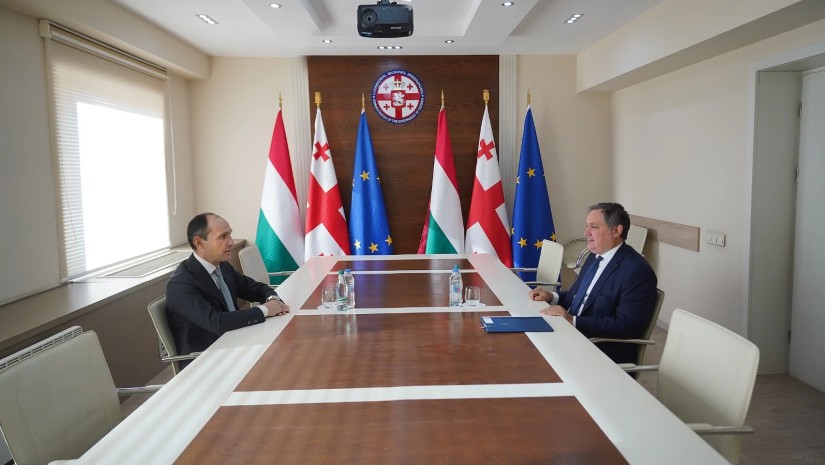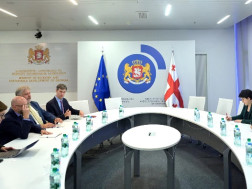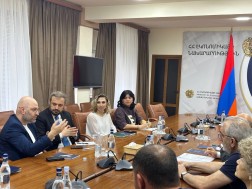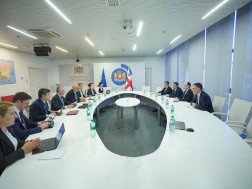Georgian Economy Minister Levan Davitashvili and Márton Nagy, the Minister for National Economy of Hungary, on Tuesday discussed the current state of trade and economic relations between the two countries, as well as the prospects for their further development.
The Ministry of Economy said the discussion came as part of the ongoing official visit of a Hungarian Government delegation to Georgia. During the meeting, Davitashvili expressed gratitude to his counterpart for the visit and for his Government’s “ongoing support” for Georgia.
The Georgian Minister also highlighted trends of growth in the domestic economy and its “encouraging environment for investment” at the meeting, while both leaders noted the “significant untapped potential” for partnership across various sectors, and emphasised the importance of fully realising these opportunities.
The meeting also included discussions about the intergovernmental commission for economic cooperation, with its fifth session held in Budapest last year. The next session is anticipated to take place in Tbilisi, where trade, investments, tourism, agriculture, environmental protection, energy, and education will be addressed, the Ministry said.
Davitashvili also underscored the importance of the investment promotion and protection agreement, signed earlier this year to bolster the investment landscape between the two countries.
"There is significant potential for deepening the trade and economic partnership between Georgia and Hungary across many sectors. We are committed to actively working together, including within the intergovernmental commission. Notably, our trade turnover has increased by 20 percent in the first nine months of this year, reaching $64 million. Our goal is to elevate these connections to higher levels, for which we will actively collaborate”, Davitashvili said.
Additionally, the leaders discussed the progress of the Black Sea submarine cable project - an international project that aims to create a new transmission route to deliver green energy from the South Caucasus to Europe - emphasising it as a “critical infrastructure project” for enhancing the security of the European energy system by connecting the electric energy systems of Georgia and Europe.
The Ministry said both parties agreed to continue their “close cooperation” on the project.
















